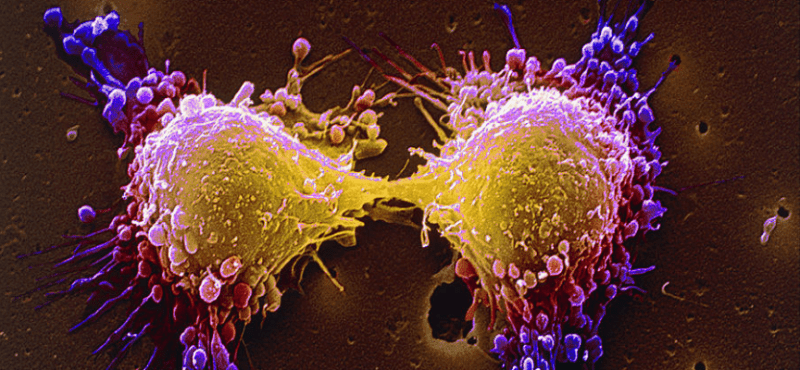All the major integrative systems of the body function in search of balance, homeostasis. The autonomic nervous system has to balance its sympathetic and parasympathetic components with antagonistic but complementary functions. The endocrine system is regulated by feedback mechanisms between the pituitary and the hormones secreted by the target gland that function as a thermostat to maintain homeostasis.
We know much less about how such homeostasis is achieved in the immune system or the central nervous system, but it seems plausible that if distress can cause adverse effects, it is very likely that good stress, or what Selye termed "eustress" promotes health. Sir William Osler noted that the course of tuberculosis depended more on "what the patient has in his head than what he has in his chest". Ishigami in Japan came to a similar conclusion in his paper "The Influence of Psyche Acts on the Progression of Pulmonary Tuberculosis,"which appeared in the American Journal of Tuberculosis in 1919. Some stable patients deteriorated and died after learning of the loss of a loved one. In other, more severe cases, a full recovery surprisingly occurred, despite the fact that no specific therapy wasavailable. "These patients had the characteristic of being optimistic and not worrying easily,"he wrote.
A firm faith, a sense of social support from family and friends, appear to be potent stress buffers. Not surprisingly, therefore, such attributes have also been associated with a lower risk of cancer.
Lack of emotional support as well as some other traits were convincingly demonstrated as highly predictive traits of cancer by Eysenck and Grossarth-Maticek. More importantly, it has been demonstrated in large long-term prospective studies that stress reduction strategies were effective in reducing malignant tumors by 50% in individuals evaluated as patients at risk of developing cancer.
Spiegel's study has similarly shown that patients with metastatic breast cancer who participated in social support group activities had an 18-month increase in survival compared with controls who received routine treatment alone. Fawzy et al found that adding a 6-week stress management program to treatment for early-stage melanoma improved immune system function compared with controls. After 6 years, the stress-control group had less than half the rate of recurrence and deaths.
How to explain the numerous well-documented cases of spontaneous cancer remission? Ikemi's meticulous studies of these patients suggest that strong faith and a strong positive belief system was the common denominator. But how does it work? How does the placebo effect work? How are the benefits of faith healing or "therapeutic touch" achieved? Is there such a thing as psychic healing? No changes in the immune system, neuroendocrine, or central nervous system have been demonstrated with these types of responses.
Good health depends essentially on good communication within the internal environment, as well as with the external environment, in order to preserve homeostasis.
That holds true for all living systems, ranging upward from the cell to an organ, person, family, group, nation or a society. What we often fail to appreciate is that these systems are in constant communication, and problems at one level reverberate down the line.
In essence, the basic problem with the cancer cell is that it does not communicate properly, as evidenced by these quotes from Yamasaki's article in the non-genotoxic mechanisms of carcinogenesis: "Cancer can be thought of as a rebellion in an ordered society of cells when they neglect their neighbors and grow autonomously over the surrounding normal cells." Cancer can be thought of as a rebellion in an ordered society of cells when they neglect their neighbors and grow autonomously over the surrounding normal cells."Since intercellular communication plays an important role in the maintenance of an ordered society, this communication is disrupted in the process of carcinogenesis.""The evidence suggests that blocking the communication between cells in an orderly society can lead to cancer. "Evidence suggests that blocking intercellular communication is important in the process of promoting carcinogenesis."
While we cannot define stress, all our research confirms that the feeling of being out of control is always distressing. That also happens to be the best definition of the cancer cell - which is essentially a cell out of control, since it does not communicate. Could it be that the beneficial effects of strong faith, or visual imagery, are somehow related to the development of a sense of control? Could the message somehow filter through a complex network of information from the body to the cancer cells?
We know that the brain has both neuronal and humoral connections to the immune system that can transmit such messages. However, it is clear that there are receptors on cell membranes sensitive to very subtle electrical energies similar in nature to those generated in the body. EEG wave patterns may be much more than simply the noise of brain machinery. They may well represent messages being sent to other parts of the body. This is consistent with the theory of an internal electrical circulatory system and its dramatically successful treatment of metastatic lung tumors using weak electrical energies from Nordenstrom. Understanding how such mind/body interactions are mediated can help us learn how to stimulate, simulate or emulate such mechanisms to harness the wisdom of the body and its impressive self-healing potential. Considerable evidence suggests that such forces play an even more important role in stress-cancer relationships because of their ability to control cell growth at its very basic level.
We are all exposed daily to a host of potential physical carcinogens in our environment, but are there psychosocial carcinogens as well? What determines cancer resistance or susceptibility? Behavioral factors and inappropriate stress responses must also be taken into account along with genetic factors in trying to understand why some people develop cancer, or what their clinical course will be.
Altered host resistance due to perturbations in immune system function appears to be an important factor as evidenced by increased malignancies in AIDS patients and melanoma studies by Fawzy and the benefit of stress reduction has been demonstrated in both of these fatal disorders. Similarly, Cohen's detailed experiments on the effect of stress on the development of colds found that the incidences of colds for both laboratory tests demonstrating infection and clinical colds correlated precisely with the magnitude of psychological stress scores for each of the five rhinoviruses used in healthy volunteers. In addition, he also demonstrated the protective effects of strong social support.
Our current concern is with the epidemiology of cancer, the roots of which epi (about), demos (people), logos (reason), connote something that has been thrust upon us from without. What we must now begin to appreciate is what I have termed the endemiology of cancer, and those influences emanating from within the individual, which may be equally significant and potentially under our control. Louis Pasteur, the great proponent of the germ theory of disease, engaged in many debates with his famous contemporary Claude Bernard. On his deathbed, he would have declared: "Bernard raison avait, Le germe n'est rien, c'est le terrain quiest tout." (Bernard was right. The microbe is nothing, the terrain is everything).
As a final conclusion we are left with the idea that what a complete physician finally comes to understand is that:"Many times it is much more important to know what kind of patient has the disease, than what kind of disease the patient has."
Paul J. Rosch, M.D., F.A.C.P.
President, American Institute of Stress. Clinical Professor, New York University of Medicine and Psychiatry




